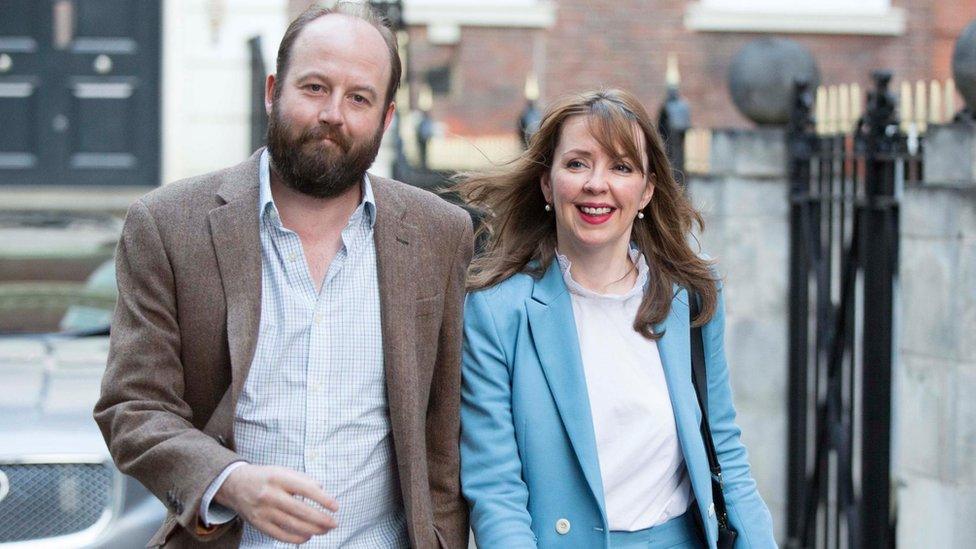Theresa May's ex-adviser to stand in Matt Hancock's seat in next election
- Published

Nick Timothy served as Theresa May's joint chief of staff with Fiona Hill (right)
Theresa May's former chief of staff has been selected by the Conservative Party to fight for Matt Hancock's seat at the next general election.
Nick Timothy has been confirmed as the party's candidate for West Suffolk.
Mr Hancock currently serves as an independent MP, having been suspended by the Tories in November after joining I'm A Celebrity… Get Me Out of Here!
Mr Timothy resigned as Mrs May's joint chief of staff after the Tories lost their majority in the 2017 election.
Local Conservative councillor Lance Stanbury welcomed Mr Timothy's selection, saying he understands local issues. He is reported to have family ties to the area.
Rachel Hood, chair of the West Suffolk Conservative Association, said it had been a "rigorous, open and transparent process".
Mr Timothy resigned as an adviser to Mrs May after the 2017 election, in which the prime minister failed to win an expected majority, having to strike a deal with Northern Ireland's Democratic Unionist Party.
At the time, he said he took responsibility for his role in the "disappointing" result, urging Tory MPs to "get behind" Mrs May.
He failed to be selected as a Tory candidate ahead of the 2019 election, but has remained politically engaged, writing a column for the Daily Telegraph.
Mr Hancock - who won West Suffolk with a 23,000 majority in 2019 - congratulated Mr Timothy on his candidacy, calling him a "fantastic choice".
The former health secretary has held the seat since 2010, but was suspended from the party last year after signing up for I'm a Celebrity, attracting widespread criticism. He came third.
In charge of the country's Covid response, he was forced to resign from the cabinet after security camera images showed him kissing a colleague, breaking social distancing rules.
He has said he wants to leave Parliament to find "new ways to reach people".
Related topics
- Published6 November 2019
- Published10 June 2017